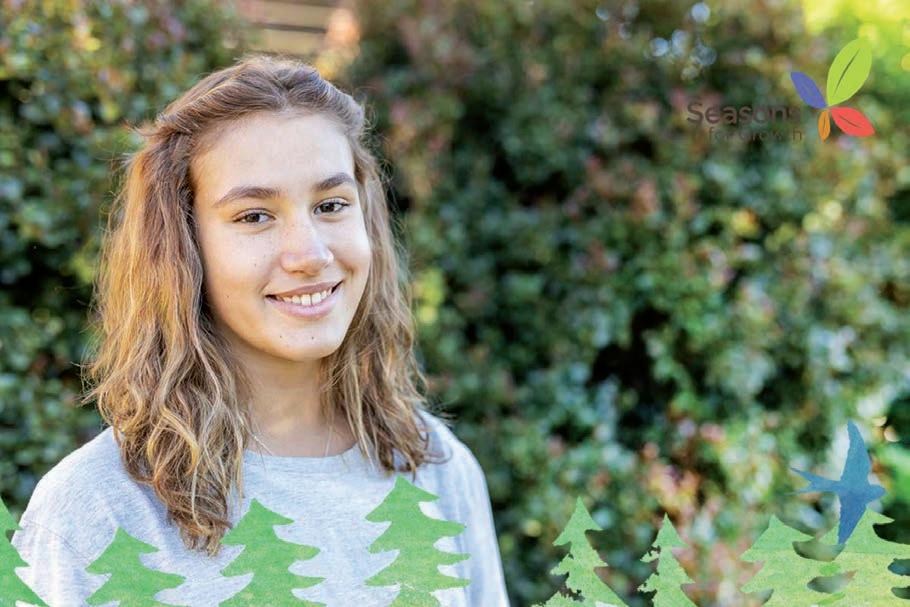
7 minute read
Building digital intelligence in the middle years
Building digital intelligence in the middle years with Digital Licence+
A GROUND-BREAKING EDUCATIONAL PROGRAM FOR AUSTRALIAN STUDENTS TO BUILD DIGITAL SKILLS AND COMPETENCIES HAS BEEN LAUNCHED BY NATIONAL CHILDREN’S NOT-FOR-PROFIT, THE ALANNAH & MADELINE FOUNDATION, IN PARTNERSHIP WITH INTERNATIONAL DIGITAL INTELLIGENCE THINK TANK, THE DQ INSTITUTE, AND SUPPORTED BY GLOBAL TECHNOLOGY LEADER, ACCENTURE AUSTRALIA.
With a modern learning approach, the Digital Licence+ supports the development of important social and emotional skills in the middle years and assists educators to cater for different learning levels.
The eSmart Digital Licence+ offers an exciting learning experience for students aged 10-14 years to explore an interactive story world and engage with learning material, relatable scenarios and guided reflections of the students’ own experiences with technology to build digital intelligence.
The rollout of the program is timely, with the Australian Curriculum, Assessment and Reporting Authority (ACARA) announcing the inclusion of digital literacy to the general capabilities under the Australian curriculum. This is in addition to Reforms to NAPLAN assessments, which will see Year 6 and Year 10 students in Australia being tested on digital literacy from 2024, if the school opts in.
Aligned to the Australian curriculum and the DQ Global Standards for Digital Intelligence, the Digital Licence+ is designed to build the knowledge and skills of students across the following areas: • balanced technology use • cyber risk management • cyber security • digital emotional intelligence
With a modern learning approach, the Digital Licence+ supports the development of important social and emotional skills in the middle years and assists educators to cater for different learning levels.
The Foundation’s CEO, Ms Sarah Davies AM, says the partnership with Accenture and the DQ Institute enables the Foundation to harness the power of the DQ Global Standards and deliver world class digital intelligence education.
“The support from Accenture and DQ Institute will enable us to bridge the digital divide which contributes to inequity in education and limits future opportunities for so many children,” Davies says.
“This ground-breaking partnership will ensure the next generation will be able to be part of the global economy. The Digital Licence+ addresses the digital skills gap.”
A targeted rollout offering access to Digital Licence+ at no cost to select schools aims to address the digital divide in regions with low socio-economic status and low levels of digital inclusion, based on the Australian Digital Inclusion Index (ADII).
“The eSmart Digital Licence+ program offers students the opportunity to grow. It delivers realtime data analytics and reports their results,” Davies says.
“It also offers educators insight into student performance, providing a dashboard and reports for easy tracking of student progress and caters for different learning levels. Students are offered the opportunity to progress through learning materials at their own pace, with access to a toolkit of recourse to support their journey and educators are supported with a suite of resources to enhance learning outcomes.”
The Digital Licence+ applies best practice in achieving student learning outcomes, drawing on the strengths of students, teachers and parents to create a triad of learning.
Digital Licence+ is part of the Foundation’s eSmart suite of programs that helps schools maintain a supportive and connected community to reduce online and offsline harms, including bullying, and increase wellbeing. EM
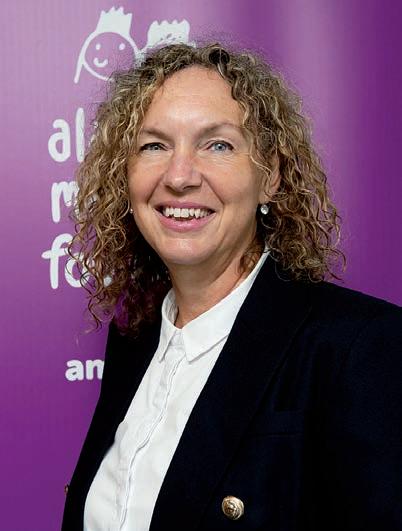
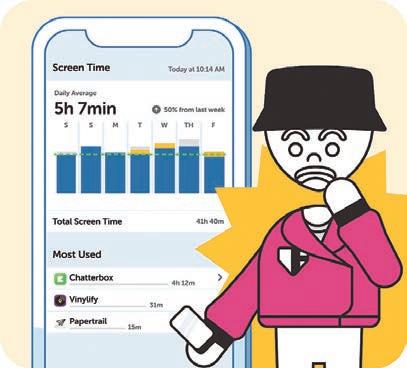
Kalani (pictured with black hat) is a character in one of the scenarios from the DL+ modules. Students can learn from his struggles to have balanced use of technology in his life.
To learn more about the Digital Licence+ program, or to see if your school is eligible to receive Digital Licence+ at no cost, visit digitallicenceplus.org
Sarah Davies AM, CEO of Alannah & Madeline Foundation.

Toolkits support school children through change and uncertainty
WITH COVID-19 RESTRICTIONS EASING ACROSS THE COUNTRY, AND DEVASTATING FLOODS HITTING QUEENSLAND AND NSW, CHANGE AND UNCERTAINTY HAVE BECOME A CONSTANT IN THE LIVES OF CHILDREN, YOUNG PEOPLE AND THEIR FAMILIES. A RECENT STUDY SHOWS CHILDREN BORN IN 2020 WILL EXPERIENCE A TWO TO SEVENFOLD INCREASE IN EXTREME EVENTS, COMPARED TO THEIR GRANDPARENTS.
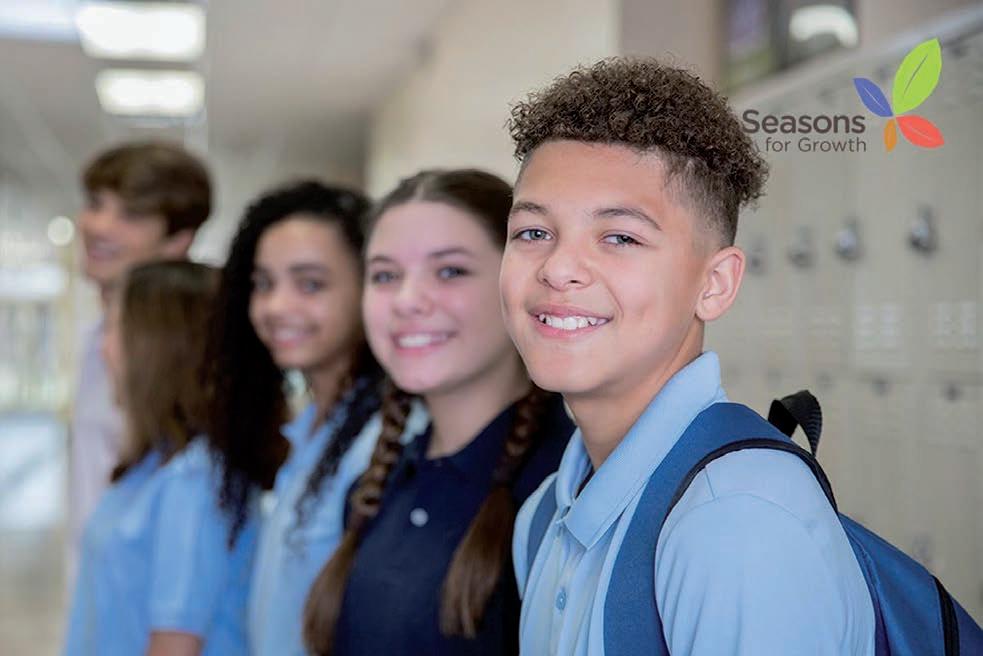
The ongoing extreme weather events continue to unfold and these successive disasters have taken a toll on the whole school community, including school teachers and leaders. The summer holidays provided little respite for families and teachers, with the promise of freedom marred by travel complexity, testing issues and the proliferation of the Omicron variant across Australian states.
While many children, families and schools have continued to try make the best of the situation, the ongoing and complex nature of these events warrants specific attention in schools. It now marks two years since
The Seasons for Growth suite of programs provide small-group emotional learning support for children. the pandemic was declared, and in that time Australia has experienced extreme bushfire, flood, cyclone and storm events.
‘’It is not enough to teach through these events, we need to ensure attention is given to the skills and capacities children need for and beyond these disasters,’’ says Ms Fiona McCallum, Seasons for Growth General Manager.
Some of these skills would be academicrelated, such as the foundational written and numerical literacy to filter and assess information. However, considerable research now attests to the impact of disruptive events on children and young people’s mental health and general social and emotional wellbeing (Commission for CYP, 2021; Lundy et al., 2021; Renshaw & Goodhue, 2021; UNICEF Australia, 2020). The impact of the events on routines, relationships and recreation means children and their families have been restricted from the sorts of relief that might usually help them cope with difficult times and stress. This highlights that children and young people need specific opportunities to learn emotional literacy and to practise the associated wellbeing skills for managing change, handling frustration and coping with uncertainty.
For over a quarter of a century now, the Australian-developed Seasons for Growth suite of programs have been providing small-group emotional learning support for children in schools.
Originally developed by Professor Anne Graham, AO, Director of The Centre for Children
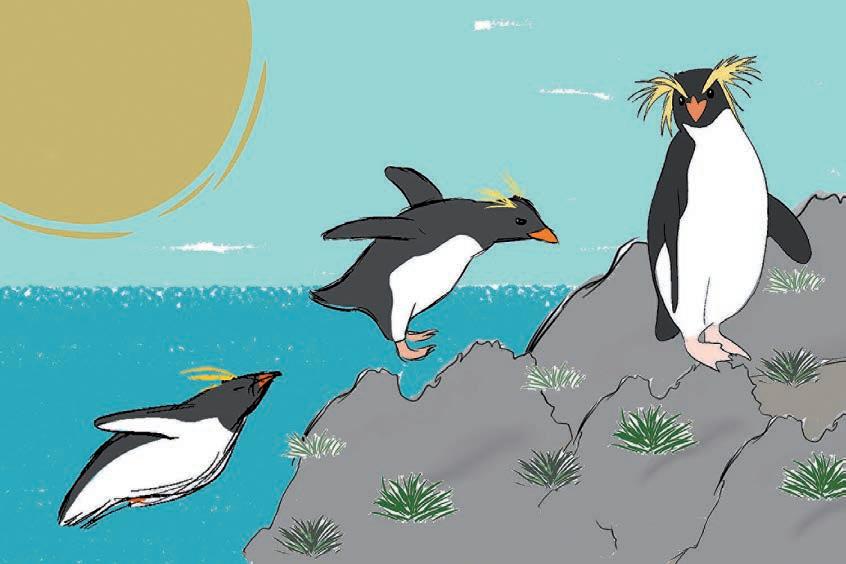
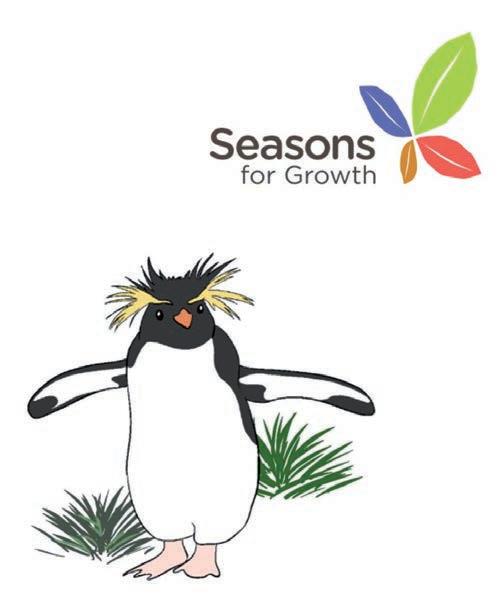
Seasons for Growth toolkits provide opportunities for children to practise wellbeing skills for managing change, handling frustration and coping with uncertainty.
Students are asked to consider how rockhopper penguines navigate challenges and change, as they practise their own ‘rockhopper skills’. ‘The Rockhopper Toolkit: Finding your feet during times of change’ builds on the knowledge accumulated over 25 years of the Seasons for Growth programs.
and Young People at Southern Cross University, to support children adapting to the change, loss and grief associated with parental separation or family bereavement, the programs have been adapted for children experiencing a wide range of change and loss events, including following natural disaster, terrorism events, for out-of-home care and suicide postvention in schools. McCallum points out that while the contexts differ, at their heart the programs are about supporting participants as they cope with, and adapt to, change and loss in their lives.
Given this underlying focus, schools and Seasons for Growth facilitators across the country and worldwide identified the potential resonance of the programs for supporting children during the current pandemic and equally with the natural disasters. They began contacting McCallum at the MacKillop Institute for advice.
“We could all see there was a clear need to support children’s resilience and that the emotional literacy offered through the Seasons for Growth programs would be incredibly valuable to all children at this time. The challenge was to adapt what had always been a small group learning experience to the needs and context of a whole class,” McCallum says.
“There are many additional wellbeing benefits derived from creating a safe space, being heard and the experience of connecting with and learning from a small group of peers who have had similar experiences. We didn’t want to lose that, but at the same time we recognised that the classroom context may not be a safe place for all children to process their experiences during this pandemic.”
McCallum and her team found the answer in the seasons and rockhopper penguins.
“Part of what makes the Seasons for Growth programs so gentle yet powerful is the underpinning metaphor of the shifting seasons. This theme also helps us to understand that difficult times will come and go and the program takes a gentle approach to raising challenging issues and finding new and helpful ways to adapt and respond to change,” McCallum adds.
‘’Initially, we wanted to find a similarly helpful idea for the pandemic context and in recent weeks, we have come to realise the applicability of the learnings following recent natural disaster events.”
‘Seasons Toolkit: Riding the Waves of Change’ is a free online resource available for all middle and secondary schools in Australia. It draws on key elements of the highly successful Seasons for Growth evidence-based psycho-social education programs which support children and young people to learn about and adapt to change and loss in their lives. EM
Learn more: www.mackillopinstitute.org.au/ resources/seasons-toolkit/
